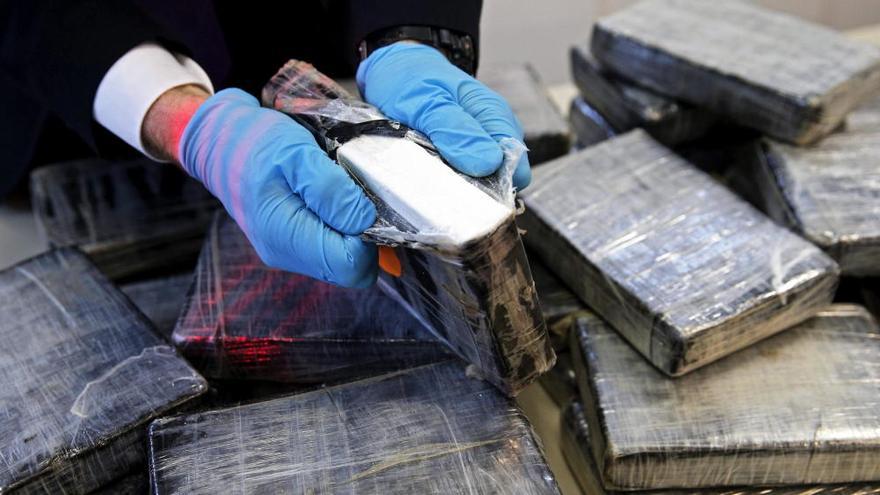
![]() 14ymedio, Havana, 20 March 2019 — Cuban security forces seized 2,438 kilos of drugs in 2018, less than half of the previous year, when 5,539 kilos was reached, and also well below the 3.2 tons retained in 2016. The figures show a huge disparity with respect to 2015, when the seizure of just 104.68 kilos was reported.
14ymedio, Havana, 20 March 2019 — Cuban security forces seized 2,438 kilos of drugs in 2018, less than half of the previous year, when 5,539 kilos was reached, and also well below the 3.2 tons retained in 2016. The figures show a huge disparity with respect to 2015, when the seizure of just 104.68 kilos was reported.
The majority of the drug seized is marijuana, with 2,071 kilograms, compared to 363 of cocaine, 3 of cannabinoids, 1 of crack and 0.15 of hashish. According to the Ministry of the Interior (Minint), the “international trend towards the legalization of marijuana” directly influences these data.
The Cuban government, which disseminated the data on Tuesday through the official newspaper Granma, blames the drug trafficking business on Cuban coasts on “criminal groups of foreigners and Cuban emigrants interested in introducing drugs into the national territory.”
The majority of drug trafficking operations are carried out by sea, Minit’s estimate is 90%. Not coincidentally, 77% of the drug seized comes from stopping small speedboats that the authorities attribute, again, “to operations organized by Cubans living abroad.” The police arrested four people with 144 kilograms of marijuana attempting to enter the island in two operations by sea and neutralized two others in jurisdictional waters that allowed the capture of four other foreign drug traffickers and they seized 132 kilos of the same substance.
The air route, despite being less used, also generated 49 neutralized operations in which a total of 90 people, 54 Cubans and 36 foreigners, were arrested trying to sell drugs on the island. Most cases were concentrated at the José Martí International Airport in Havana, although the Minint draws attention to an operation at the Frank País aerodrome in Holguín, as well as two cases through the postal channel and one through the international cargo terminal in the capital.
To draw attention, again, to the role of emigrants, the official statement emphasizes the participation of “Cuban emigrant traffickers, with the use of couriers of various nationalities and origin in different countries” in the organization of drug entry operations through Internet applications, such as Imo or WhatsApp with which mules were recruited.
This year to date, within the island, the authorities seized 83 kilos of drugs, a quantity much higher than the 18 of the previous year, in actions that included the detection of concealed drugs along the coast, isolated harvests of marijuana and its transfer to other territories (especially Havana) and/or the prevention of the consumption of drugs and medicines with similar effects.
Minint highlights the actions taken in the fight against drug trafficking and the coordination of the Armed Forces to confront it, as well as the agreements it has with 37 foreign police, Interpol and other organizations to exchange information, the promotion and development of cooperative investigations and mutual legal assistance.
The note admits the existence of networks of drug trafficking and drug consumption on the island but insists on the government’s commitment to fight it “to achieve sustainable development and well-being” of the people. It also accuses the boom of marijuana use to those who “try to justify it, through its legalization, as another commodity of the capitalist economy.”
Cannabis use is legal for medicinal purposes in several countries of the continent, from Canada and the US to Costa Rica and Colombia. The only country in the world that has fully legalized its use is Uruguay, which in 2013, during the term of José Mujica, approved a law that regulates the sale and distribution of the plant and its private cultivation.
_________________
The 14ymedio team is committed to serious journalism that reflects the reality of deep Cuba. Thank you for joining us on this long road. We invite you to continue supporting us, but this time by becoming a member of 14ymedio. Together we can continue to transform journalism in Cuba.
